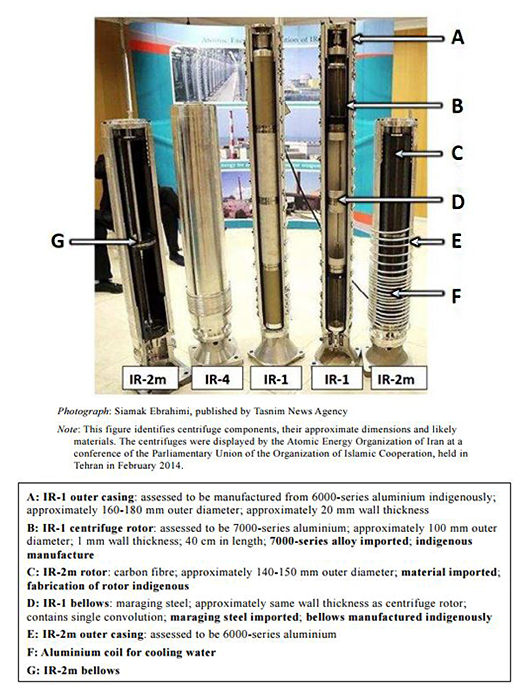Primer: The 3rd Khordad system, which is based on the Russian S-300 and shot down a U.S. sophisticated large Global Hawk US drone in June 2019. Iran is the major supplier of weapons to Syria.
Iran’s foreign minister says the country will meet its strategic needs by purchasing weapons from Russia and China, and has no need for European weapons once the UN embargo is lifted in October.

(Bloomberg) — European governments that aren’t backing the U.S. re-imposition of United Nations sanctions on Iran are wedded to the “silly” 2015 nuclear deal and haven’t proposed an alternative for preventing new conventional arms sales to Iran, Secretary of State Michael Pompeo said.
With European powers stressing their commitment to the accord on Sunday, Pompeo doubled down on the U.S. decision to invoke the “snapback” of sanctions in a dispute that’s helped estrange President Donald Trump’s administration and Europe.
“The Europeans who have not joined us in this, they know we’re right,” Pompeo said on Fox News’s “Sunday Morning Futures.” “They tell us privately they don’t want the arms sales to come back” and expressed this view in a letter “that they’re very concerned about these arms sales.” He didn’t elaborate on who sent the letter or when.
The U.S. on Saturday said that all of the UN resolutions on Iran that were in place before the 2015 deal — from a ban on arms deals to restrictions on Iran’s ballistic missile activity and its nuclear enrichment — have now gone back into effect. But 13 of 15 Security Council members say they don’t consider the U.S. move valid.
Can’t Proceed
“It is illegitimate for the U.S. to demand the Security Council invoke the snapback mechanism” because it is no longer a participant of the deal, Chinese Ambassador Zhang Jun wrote in a letter to the Security Council on Saturday that was seen by Bloomberg News.
UN Secretary General Antonio Guterres also weighed in on the disagreement on Saturday, noting in a letter that he couldn’t proceed in acting upon the U.S. snapback because of the “uncertainty over whether or not the process” was “indeed initiated”.
Although Europeans have expressed private concern, “they haven’t lifted a finger, they haven’t done the work that needs to be done” or have outlined an option to the U.S. snapback, Pompeo said. “I hope they’ll join us. I hope they get to the right place. They’re still wedded to this silly nuclear deal that was signed now five years ago.”
Weapons Purchases
Absent the snapback, Iran would be able to resume buying arms, tanks and air defense systems, Pompeo said. “All of those in a couple of weeks, would have been permitted to have been sold,” he said.
European powers on Sunday stressed their commitment to the nuclear agreement.
“We have worked tirelessly to preserve the nuclear agreement and remain committed to do so,” the foreign ministers of France, Germany and the U.K. said in a statement. Josep Borrell, the European Union’s foreign policy chief, said the accord is “a key pillar” of nuclear non-proliferation that deserves support.
Since quitting the accord in 2018, the Trump administration has plowed ahead with efforts to undermine the deal, ratcheting up sanctions on Iran and threatening allies if they do business with the Islamic republic. Trump is expected to speak on Tuesday to the UN General Assembly, which is being held virtually this year.
The U.S. campaign has united partners such as the U.K., France and Germany with Russia and China, all of whom have sought to salvage the accord. Their support for the deal has left the U.S. isolated on the United Nations Security Council.
Why U.S., Other Powers Differ on Iran Nuclear Deal: QuickTake
Iranian President Hassan Rouhani, at a cabinet meeting on Sunday shown on state television news, called the U.S. move a sign of “certain failure” which only demonstrates that President Donald Trump’s strategy has resulted in “maximum isolation” for Washington.
On Saturday, the commander of the Islamic Revolutionary Guard Corps threatened Iran would set U.S. military outposts in the Persian Gulf “on fire at once” if its adversary tried to start a war.
To enforce those measures, if countries like Russia and China disregard them, the U.S. could use tools such as secondary sanctions on shippers, insurers and banks. It could even threaten interdictions of ships at sea.
Read More: Iran Warns U.S. Against War Before UN Sanctions Showdown
“In the coming days, the United States will announce a range of additional measures to strengthen implementation of UN sanctions and hold violators accountable,” Pompeo said in his statement on Saturday. “Our maximum pressure campaign on the Iranian regime will continue until Iran reaches a comprehensive agreement with us to rein in its proliferation threats and stops spreading chaos, violence and bloodshed.”
Speaking Sunday at a church in Plano, Texas, Pompeo, said he prays that “the Iranian people that they will get a government that they deserve that respects the dignity of the lives of the Iranian people.”
The Iranian rial hit a low on the unregulated open market on Sunday, weakening 4.6% compared with last week and briefly breaching 280,000 per U.S. dollar, according to two currency trading channels on the Telegram messaging app.

 Michelle Bachelet
Michelle Bachelet

 Brigadier Ghulam Ali Abu Hamza, commander of the Iranian Revolutionary Guard Corps
Brigadier Ghulam Ali Abu Hamza, commander of the Iranian Revolutionary Guard Corps